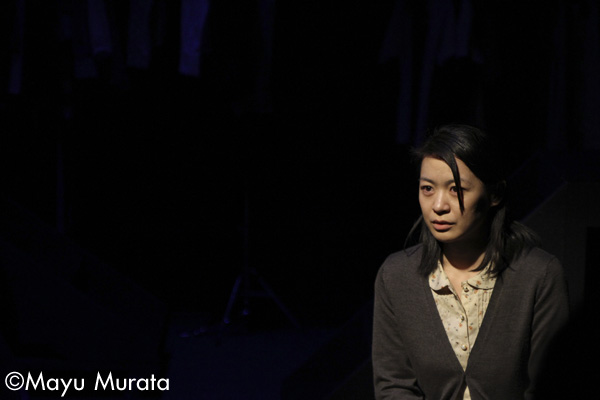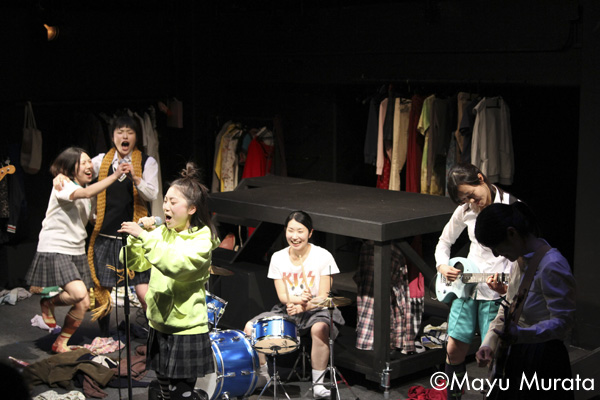

Gareki no Taiko’s 6th production
Haku hodo ni Nemuru
(Sleeping until it makes you nauseous)
(Jan. 1 – 15, 2012 at Komaba Agora Theater) Photo: Mayu Murata
Data
:
Premiere: 2010
Length: 1 hr. 35 min.
Acts/scenes: 1 act, 1 scene
Cast: 8 (8 women)


